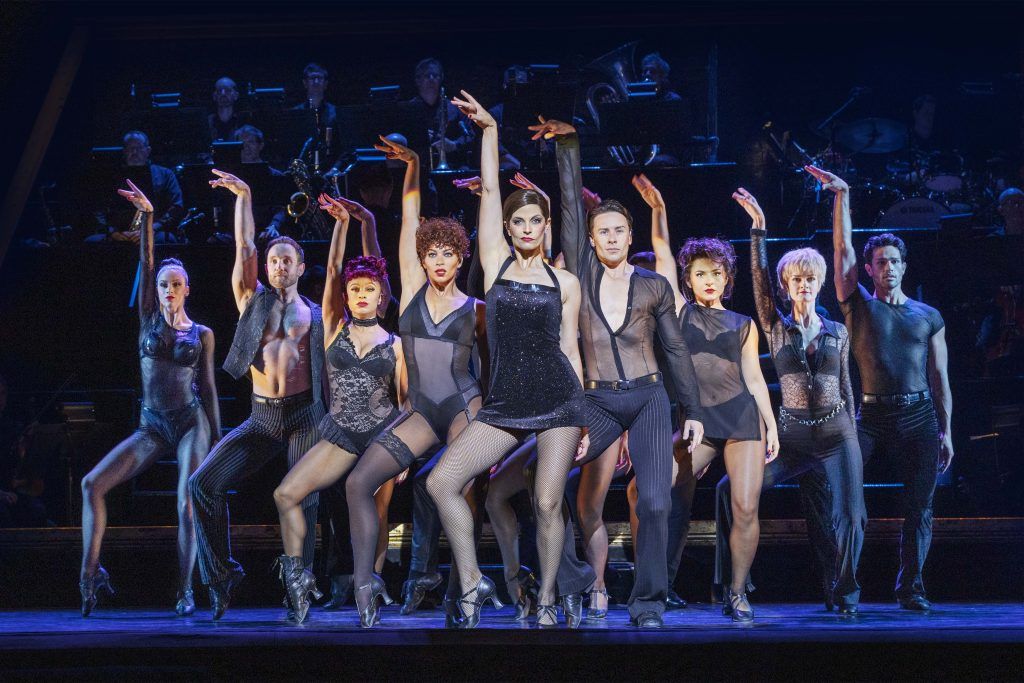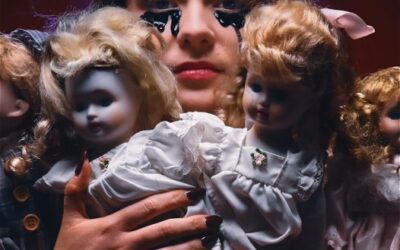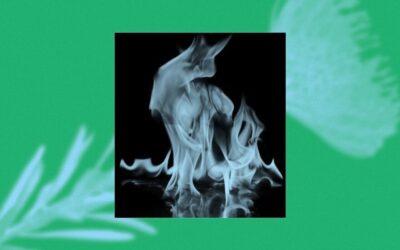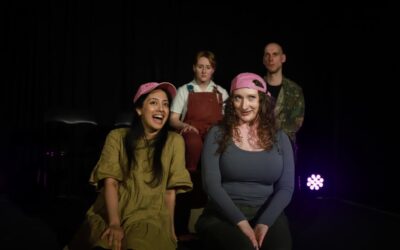Review by Tim Garratt
It’s almost 50 years since Chicago’s first production on Broadway.
Directed and choreographed by Bob Fosse, and inspired by a 1926 play by Maurine Dallas Watkins, the original production opened in 1975, but it received mixed reviews and failed to receive any Tony Awards. It was only much later – in 1996 – when Chicago began cementing its status as one of the most revered works in the canon. At that time, a New York revival opened, with direction by Walter Bobbie and choreography ‘in the style of’ Fosse by Ann Reinking. In stark contrast to the fortunes of the original production, the revival earned excellent reviews, won six Tony Awards, and is still playing on Broadway, now the second-longest running show in the Great White Way’s history.
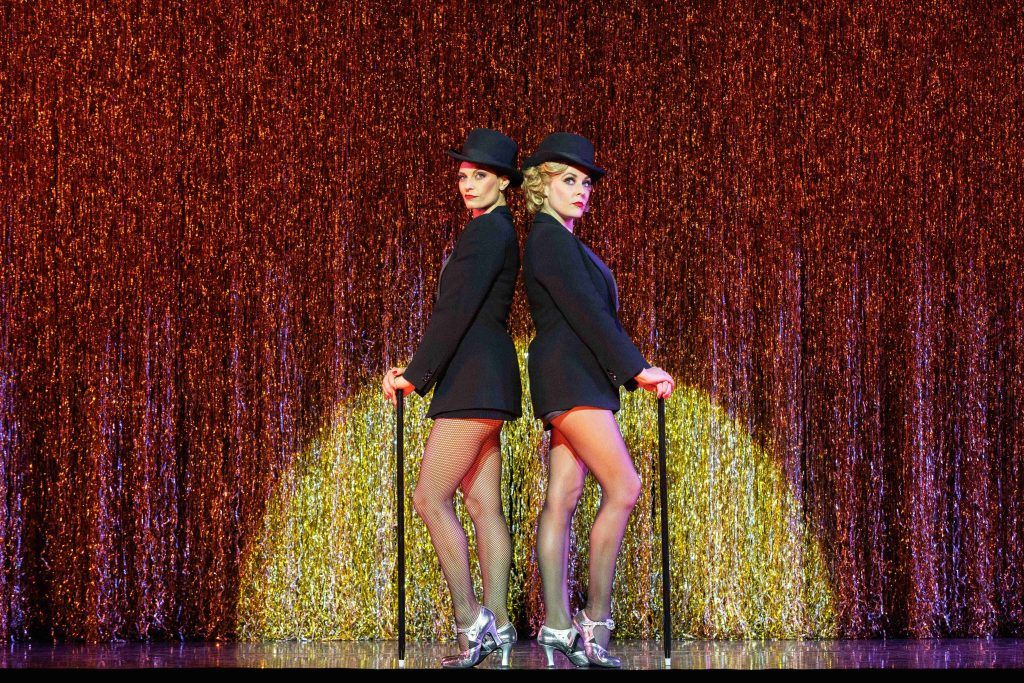
Directed by Tânia Nardini, this Australian tour of Chicago recreates Bobbie’s award-winning 1996 revival. With music by John Kander, lyrics by Fred Ebb, and a book by Ebb and Fosse, the show harks back to Prohibition era Chicago. In the Cook County Jail, Roxie Hart (Lucy Maunder) awaits trial for the murder of her lover, Fred Casely (Devon Braithwaite). The facts are stacked against her and, if convicted, Roxie may become the first woman to be hanged in Cook County in 47 years.
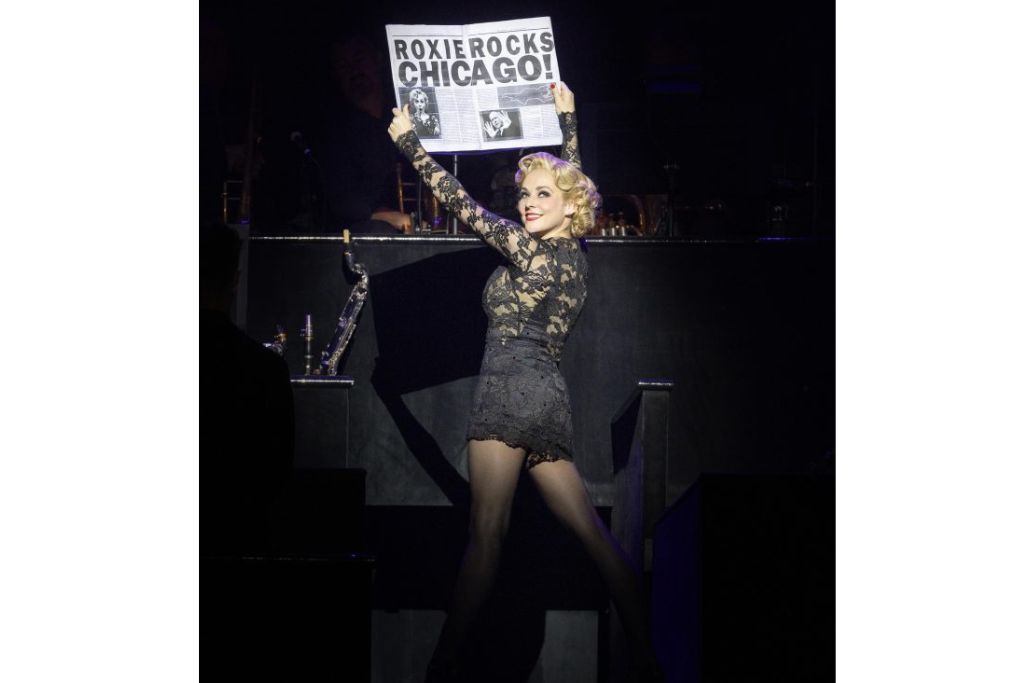
In search of a miracle, and with some guidance from the jail’s Matron ‘Mama’ Morton (Asabi Goodman), Roxie puts her fate in the hands of Chicago’s smoothest celebrity lawyer, Billy Flynn (Anthony Warlow), who has some tricks up his sleeve to save her from the gallows. That sleight of hand will involve winning over Mary Sunshine (S. Valeri) and a gaggle of reporters, to re-shape the narrative – and public sentiment – in Roxie’s favour.
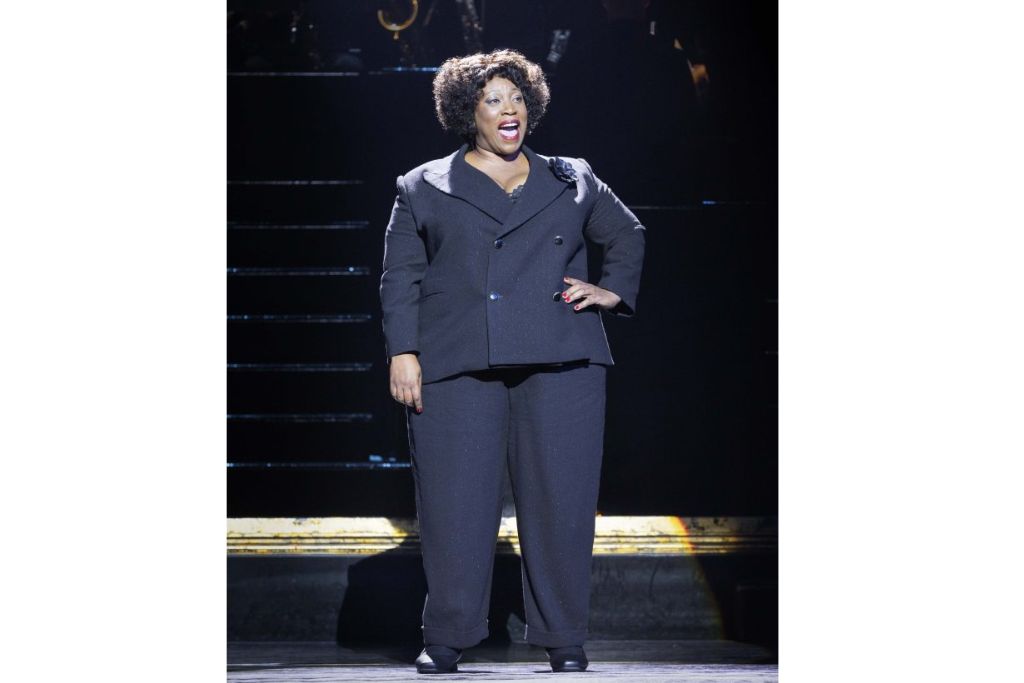
I’ve seen the last three Australian productions of Chicago (all based on Bobbie’s revival) and never tire of the show; its dark, satirical story is a salient illustration of the unrelenting sway of mass media; its ability to obfuscate facts, and to cast the heroes and villains. The phrase ‘alternative facts’ only entered the lexicon in 2017, but it perfectly describes Billy’s chicanery in the Cook County Courthouse.
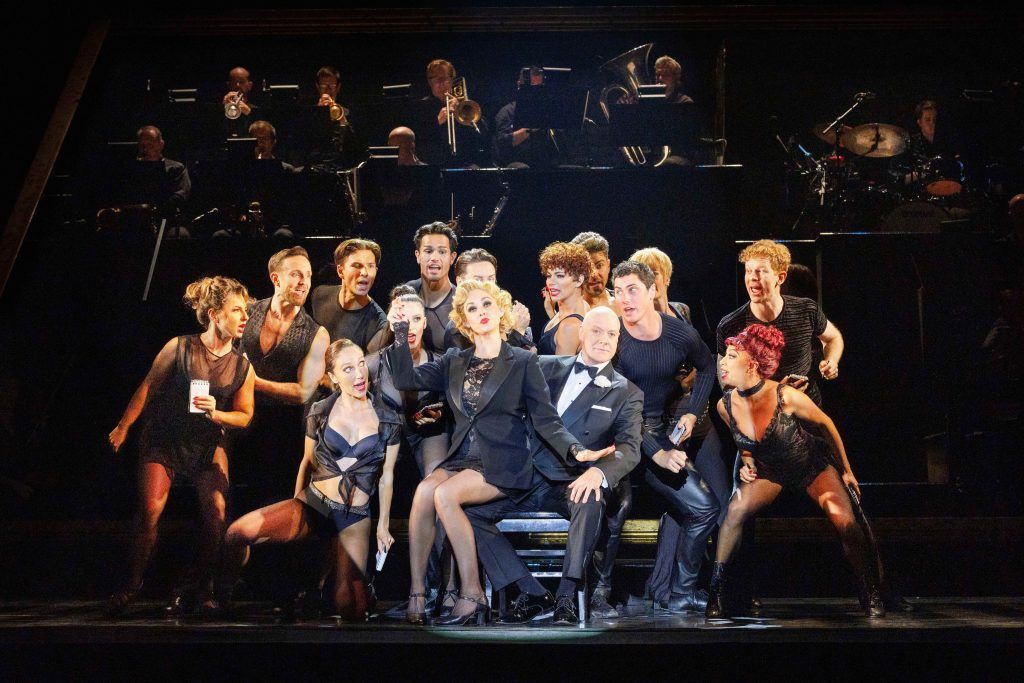
Chicago’s endurance as a classic also owes to Kander and Ebb’s score, one of the finest collaborations from a long and fruitful partnership. Its jazzy numbers evoke the roaring twenties; they’re catchy and cleverly written, and they’re well matched to the vaudevillian presentation of the story. Musical director Anthony Barnhill has the orchestra sounding wonderful on opening night, providing a tight and fulsome reproduction of the score. Julian Spink deserves credit here, too, as the sound quality is just as pleasing.
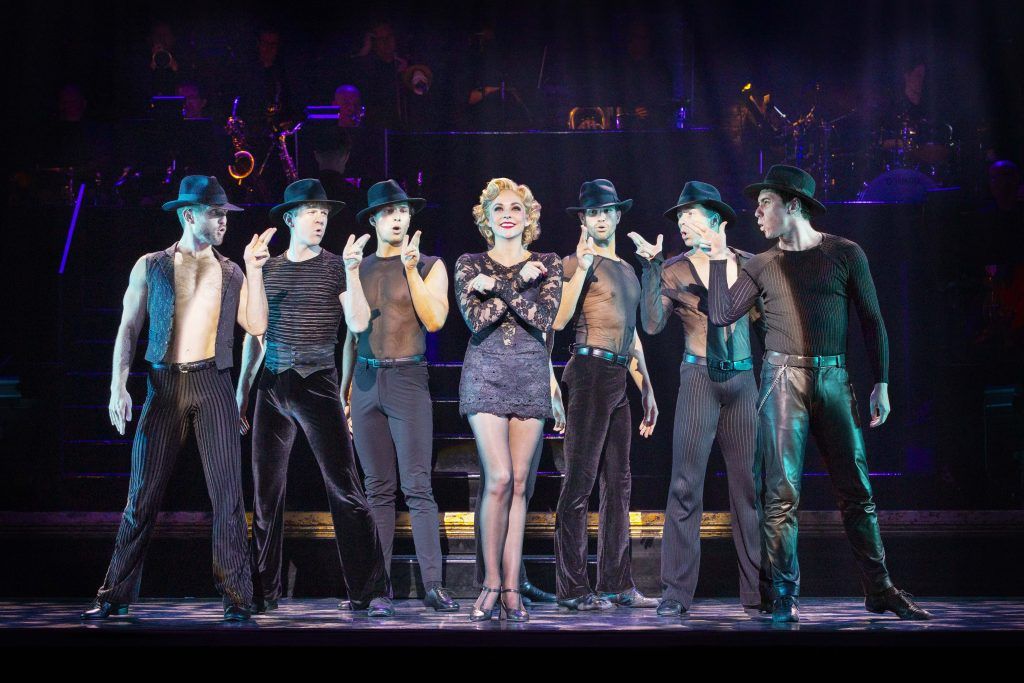
Designed by John Lee Beatty, Chicago’s set is stripped back, but paired with Ken Billington’s simple lighting, it suffices. The orchestra sits centre stage in something resembling a jury box. Some chairs and a few hand-held props are the only other embellishments. It’s a modest production design that allows the story, music, and performers to be front and centre.
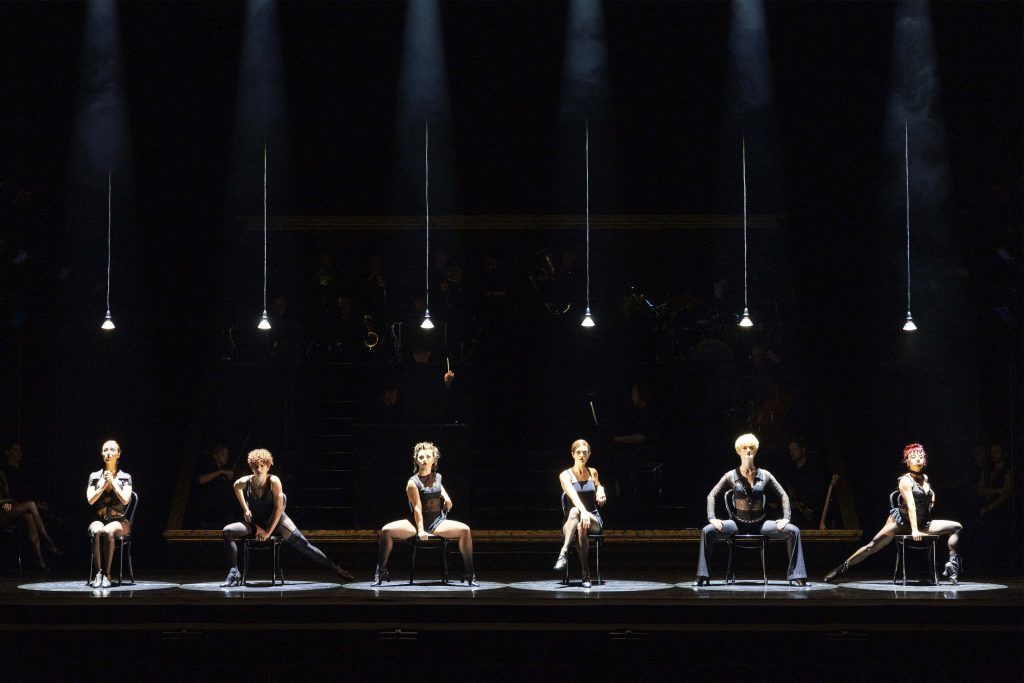
And when your troupe is as white-hot as Chicago’s ensemble cast, bells and whistles are unnecessary. Under Gary Chryst’s supervision, this ensemble brings the vital energy and precision to their execution of Reinking’s Fosse-inspired choreography – meticulous movements that demand performers with impeccable skills. This production accordingly succeeds in serving up the spectacle that musical theatre aficionados expect from Chicago.
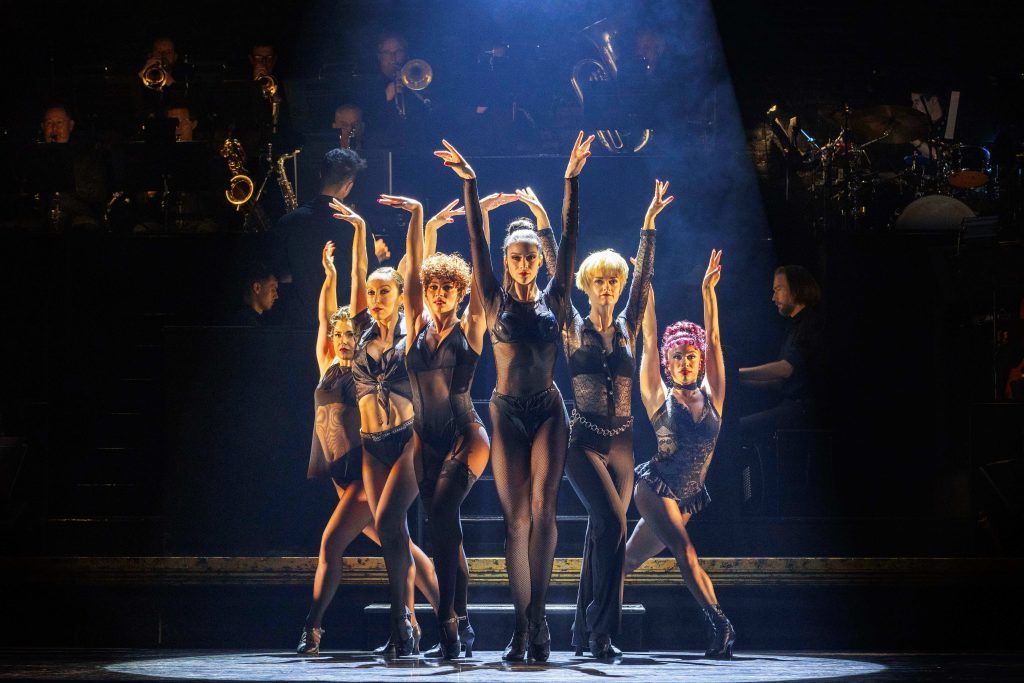
Leading the cast, Zoë Ventoura brings spades of sass to double murderess and veteran vaudeville singer Velma Kelly, who fights hard not to have her moment in the spotlight stolen by Roxie. Maunder makes a welcome return to the stage as leading lady, Roxie, with a winning performance as the somewhat naïve but completely narcissistic killer, singularly focused on her pursuit of stardom. Goodman is well cast as the charming but unscrupulous matron of the jail, treating audiences to a commanding rendition of ‘When you’re good to mama’. Peter Rowsthorn, meanwhile, is a crowd favourite as Roxie’s hapless husband, Amos, bringing the audience along with his take on ‘Mister Cellophane’.
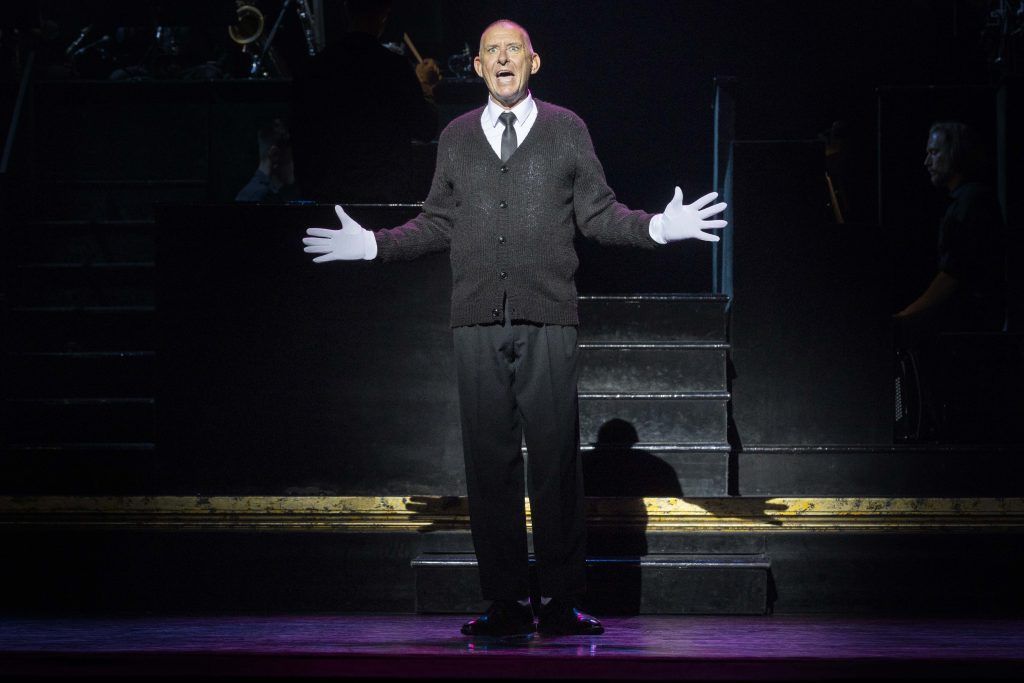
And then there’s Warlow, whose performance makes him a constant scene-stealer. Warlow exudes all the charisma you’d hope to see from the slick defence lawyer. His lyric baritone is in fine form, and Act I’s ‘We both reached for the gun’ – showcasing Warlow’s tremendous acting talent – is a highlight of opening night.
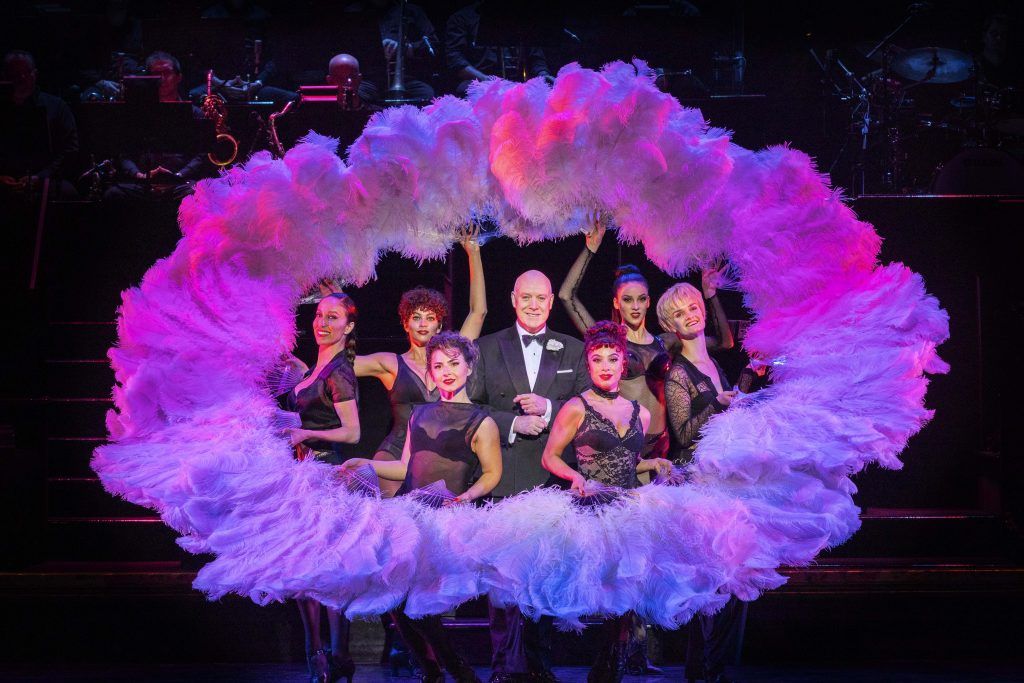
Chicago may soon turn 50, but there’s a reason it still sells tickets (in Sydney and across the globe). It speaks to society’s interminable obsession with celebrity and scandal, as well as the media’s power to manipulate, and it’s a highly entertaining and stylish work. If you’ve never seen Chicago, it’s certainly worth a visit, and even if you’ve seen a previous outing, you’ll enjoy returning.
Chicago is now playing at Sydney’s Capitol Theatre. For more details and tickets: https://chicagomusical.com.au/

